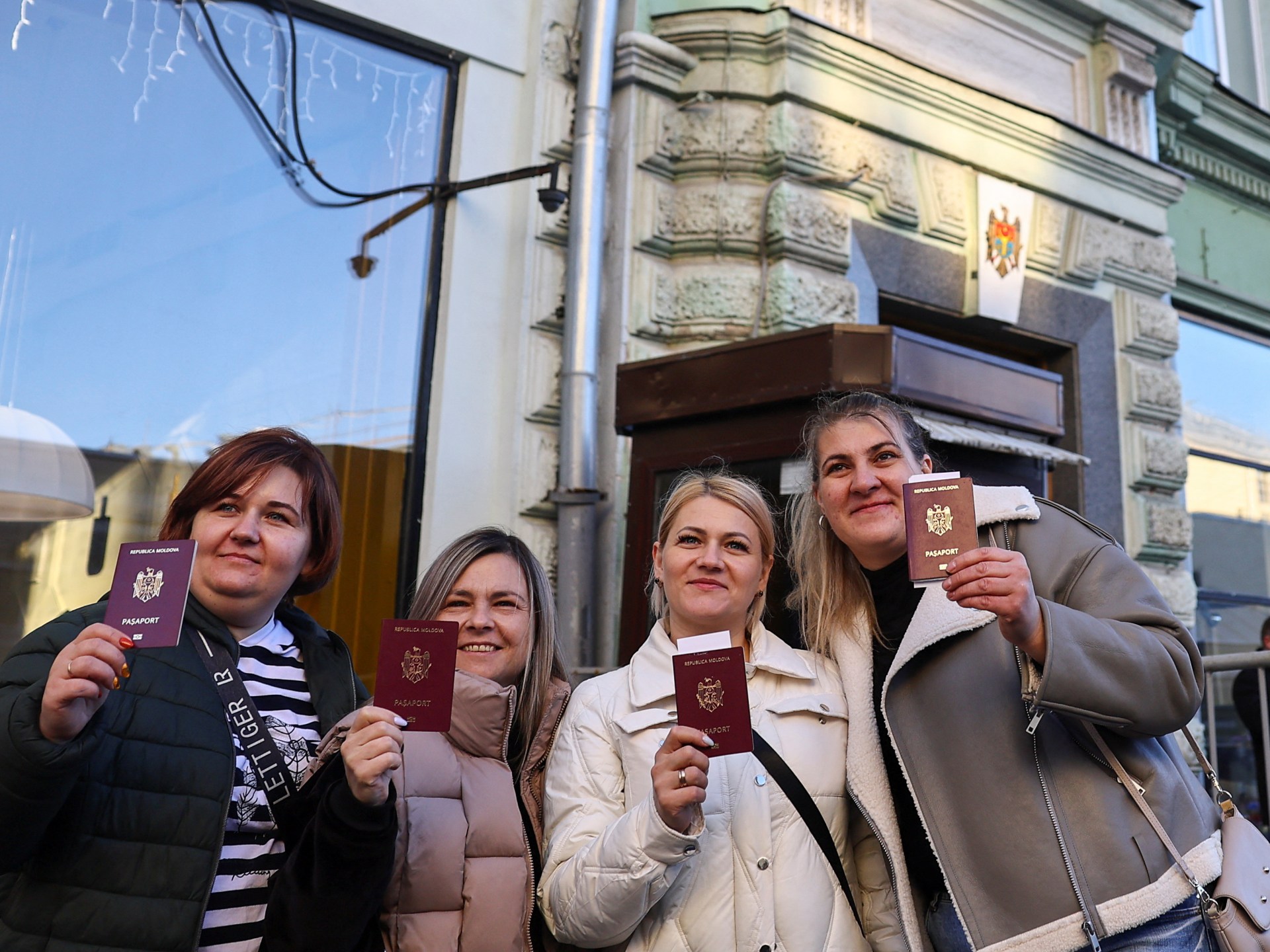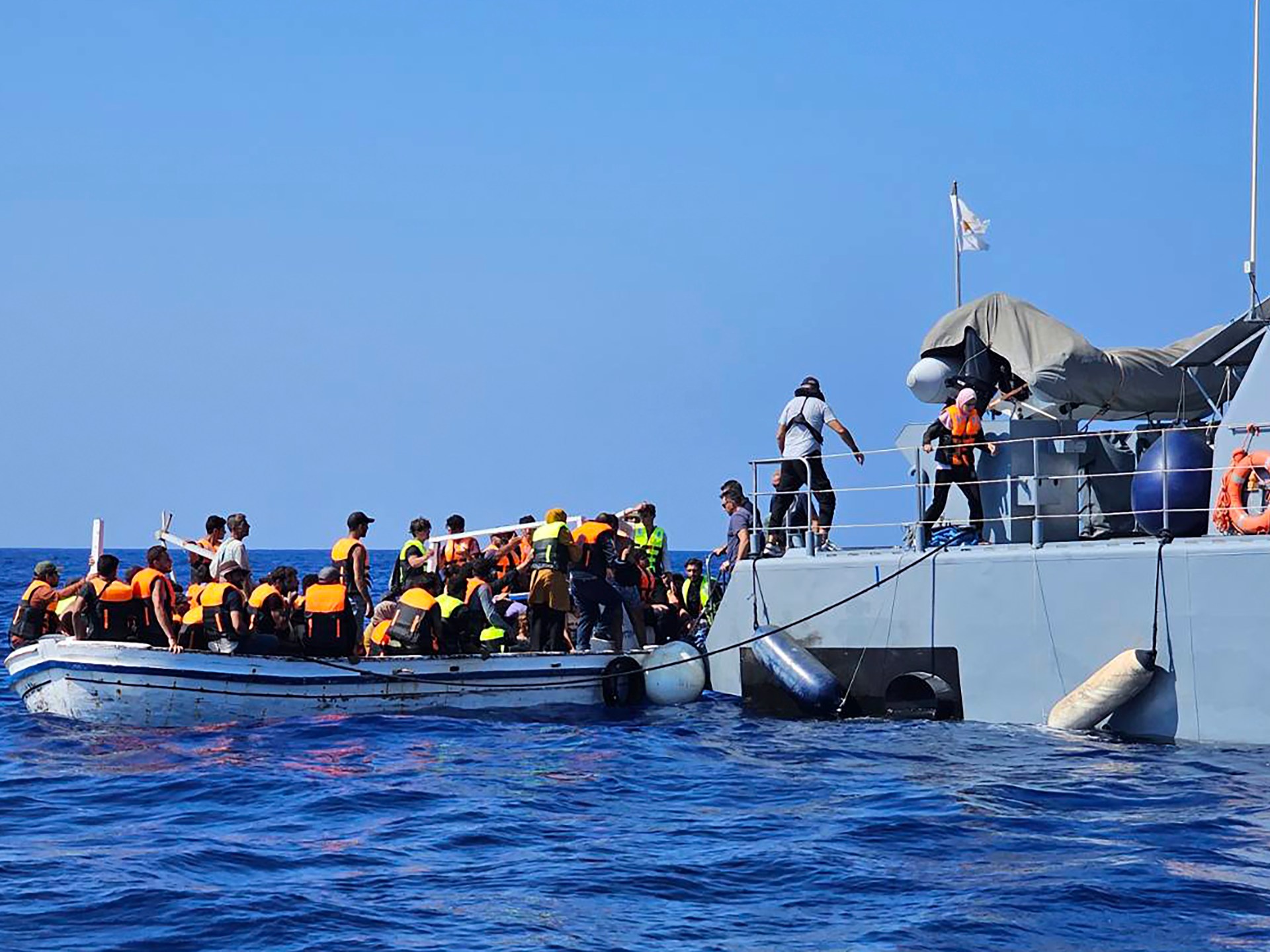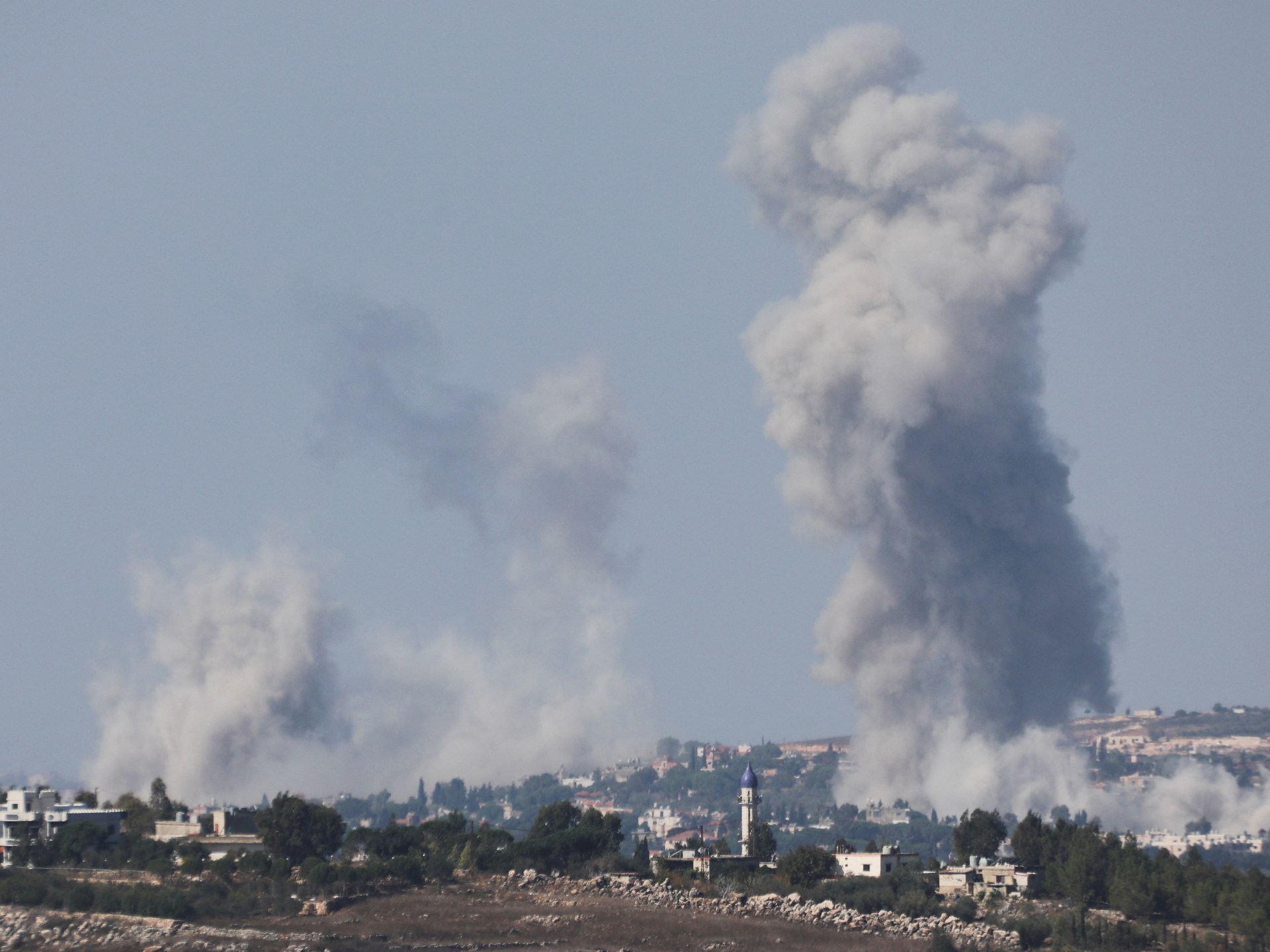Moldova votes for president, EU path amid Russian interference allegations
 20 October 2024
20 October 2024


Moldovans are voting in a presidential election and a European Union referendum that will determine whether the country, which neighbours Ukraine, remains on a pro-Western path amid allegations of Russian interference.
The twin votes on Sunday are taking place at a critical time as Moldova is vying to join the EU and amid allegations of meddling by Russia.
As the war in Ukraine continues unabated since Russia’s full-scale invasion in 2022, the former Soviet republic is hoping to leave Moscow’s orbit and embark on the long process of EU accession talks.
Polls indicate that the West-aligned incumbent, Maia Sandu, has a sizeable lead over her 10 rivals on the ballot.
The race will go to a November 3 run-off if she fails to reach the 50 percent threshold needed for an outright win. Sandu, from the Party of Action and Solidarity (PAS), would likely face Alexandr Stoianoglo, a former prosecutor general backed by the traditionally pro-Russian Party of Socialists, if the vote goes to a second round.
Rasmus Nilsson, lecturer at UCL school of Slavonic and East European Studies told Al Jazeera that while Sandu is “the clear favourite to win,” it’s possible she will have to go into a second round.
“The opinion polls put her in the mid to high 30 percent of support, so that would indicate a second round might take place,” he said.
Voters will also choose “yes” or “no” in a referendum on whether to enshrine in the country’s constitution its path towards the 27-nation EU.
Voting will end at 9pm (18:00 GMT) and partial results are expected by about 10pm (19:00 GMT).
Sandu is hoping that Moldovans will vote “yes” in the EU referendum.
“Our fate is decided on Sunday. Everyone’s vote matters, no matter where we are,” she wrote on Facebook on Friday.
President Maia Sandu, the favourite to secure another term in office, casts her ballots in Chisinau, Moldova [Vladislav Culiomza/Reuters]
Polls by WatchDog, a Chisinau-based think tank, show a clear majority, with more than 50 percent supporting the EU path. The referendum needs a one-third turnout to be valid.
Five presidential candidates have told their supporters to vote “no” or boycott, saying the timing of the referendum is solely to ensure Sandu’s election.
Sandu has been touring the country, saying joining the EU will help improve conditions in one of Europe’s poorest countries.
Moldovans are currently facing high energy prices and inflation, while the minimum wage remains low, at 5,000 lei ($283).
The country of three million people has alternated between pro-Western and pro-Russian paths since the 1991 Soviet breakup. It is also home to the pro-Russia breakaway region of Transnistria.
Ties with Moscow have deteriorated since Sandu came to power in December 2020. Her government has condemned Russia’s invasion of Ukraine, accused Moscow of plotting her overthrow and diversified energy supply after Russia reduced gas supplies.
Nilsson said that if the referendum does not conclude with a “Yes” result, then “Moldova’s western trajectory is not secured.
“Moldova is a very poor country and the socioeconomic difficulties will certainly create an unstable country in the years to come,” he said.
Nilsson added that if Moldova’s trajectory towards the EU was put in doubt, then that might also damage investment in and socioeconomic opportunities in the country.
“Immediately, there would not be dangerous consequences, but in the medium to long term, you could be looking at a less stable state,” he said.
The elections have been marred by allegations of meddling by Russia.
“Our country is at a crossroads … a group of thieves are trying to deceive people, promise them money, give them false information,” Prime Minister Dorin Recean said, urging Moldovans “to be vigilant”.
A man votes in Chisinau, Moldova [Vladislav Culiomza/Reuters]
Police have accused Ilan Shor, a fugitive tycoon who lives in Russia, of trying to pay off at least 130,000 voters to vote “no” and back a specific candidate.
Shor, who was jailed in absentia for fraud and theft and is under Western sanctions, has openly offered to pay Moldovans to persuade others to vote “no” and back “our candidate”. He denies wrongdoing and says the money is his.
On Thursday, law enforcement agencies also said they had uncovered a scheme in which hundreds of people were allegedly taken to Russia to undergo training to stage riots and civil unrest.
Russia denies interfering in Moldova and has long accused its government of “Russophobia”.
Police chief Viorel Cernauteanu told the Reuters news agency on Saturday they had done everything to prevent any influence on the vote.
“There will be some kind of impact in any case, but I think it will not influence the votes overall,” he said.
Related News

Amid anger over Israel, Harris courts Arab and Muslim voters. Will it work?

Irregular border crossings decline as EU immigration policy stiffens

Hezbollah warns of more rockets unless Israel ends air, ground attacks

